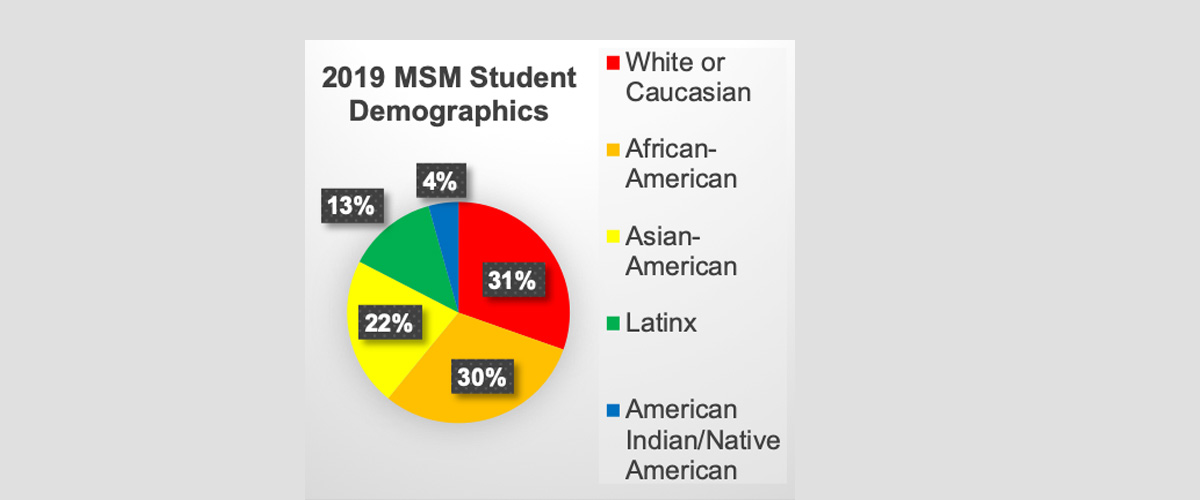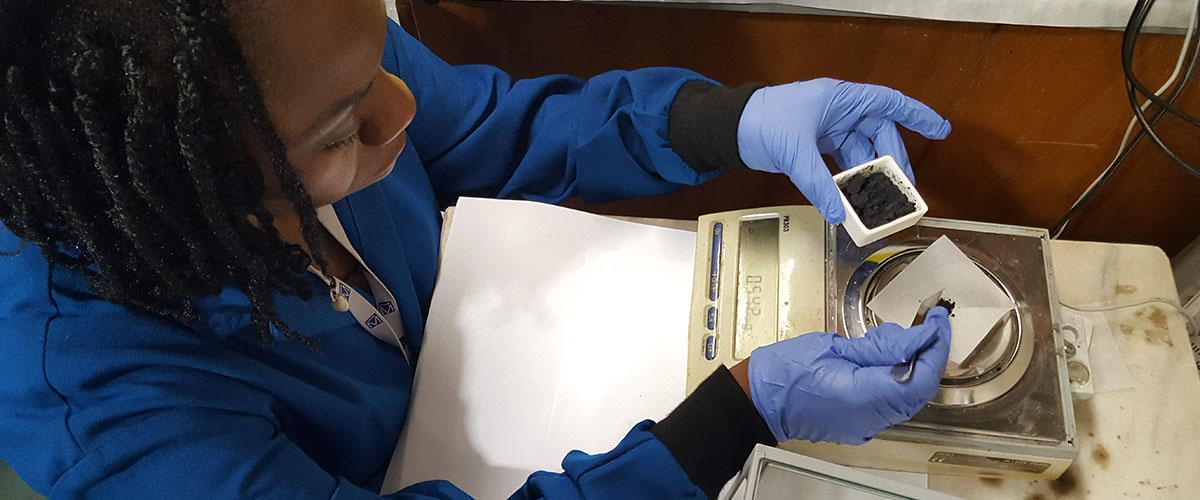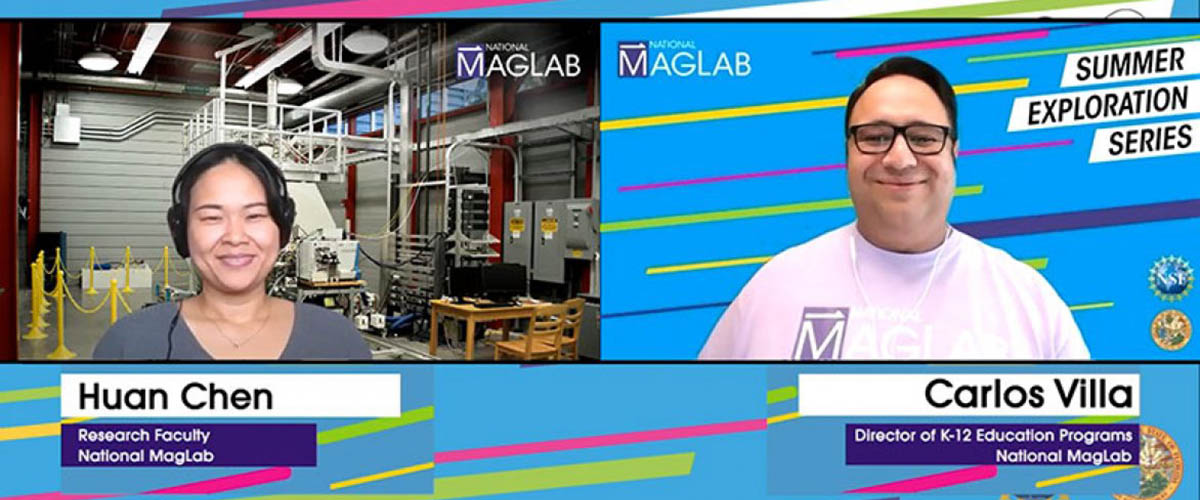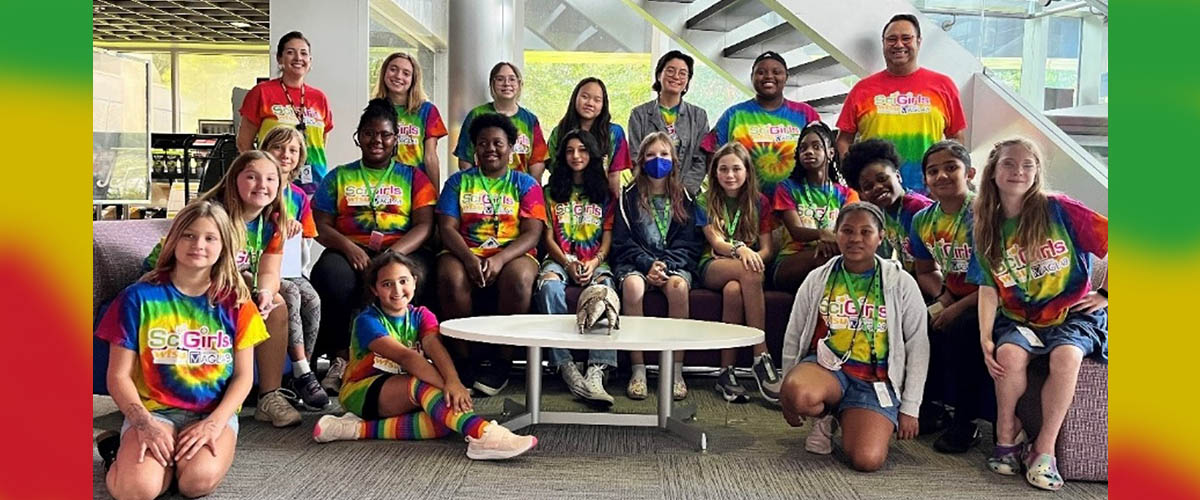What is the finding?
Over the past 20 years, the MagLab's Middle School Mentorship (MSM) Program has given over 200 middle school students a chance to conduct a research project with a MagLab scientist or engineer. For 14 weeks during the fall semester, 20 students come to the MagLab on Friday mornings to work alongside scientists, technicians, and engineers. During their time at the MagLab, the students participate in real-world scientific research and have an opportunity to preview STEM careers that they could pursue.
In 2019, the MagLab hosted its largest cohort of 20 local middle school students. For 12 weeks on Friday mornings during the fall semester, the MSM students came to the lab to work with a scientist on a research project. At the end of the program, they presented their findings during a poster session.
The Center for Integrating Research and Learning evaluates their long-term programs, like the MSM. In 2019, they found that participating youth showed a statistically-significant increase in self-efficacy, scientific literacy, and perceptions of science and engineering. Additionally, 70.5% of parents indicated that their opinion of the MagLab had changed positively. One parent offered the following: "[My child] came away with an amazing array of new scientific vocabulary ... I had high expectations about this program [and] the results were better than I expected!"
Why is this important?
Youth, particularly girls, begin to lose interest in STEM during middle school. Programs like the MSM are important at this developmental stage because they increase youth’s self-efficacy, expose them to opportunities in STEM research, and broaden their perceptions of science and engineering.
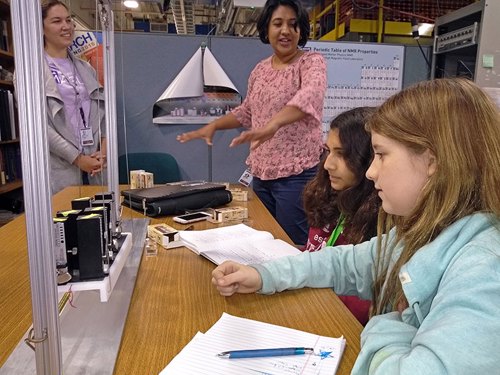
Mentors look on as their middle school students finish setting up their experiment
Photo credit: Kristen Coyne
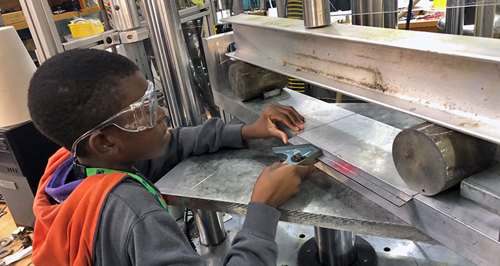
A student works on a mechanical fatigue test
Photo credit: Bob Walsh
Why did they need the MagLab?
The Middle School Mentorship program leverages the diverse areas of research that take place at the MagLab to provide rich mentorship experiences to cohorts of students. This educational research expertise within the lab's Center for Integrating Research and Learning allows a deeper understanding of how mentoring benefits middle school-aged youth during this crucial developmental age.
Funding
This research was funded by the following grants: G.S. Boebinger (NSF DMR-1157490, NSF DMR-1644779)
For more information, contact Carlos Villa.



